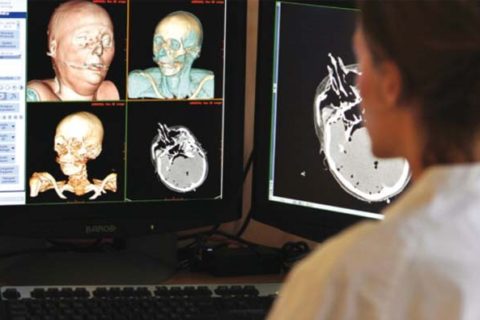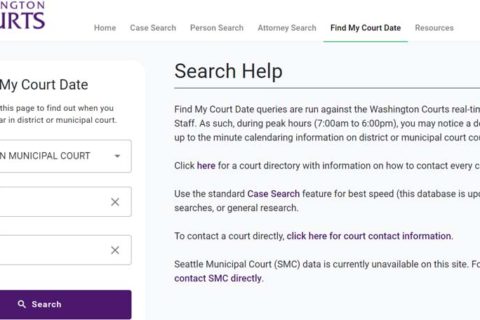Forensic pathologists have the responsibility to examine the bodies of people who have died and then determine the cause of death and the manner of death (such as suicide, homicide, natural, accidental, or unknown). They will study the medical history, evaluate crime scenes, conduct an autopsy, and collect medical and trace evidence from the body for analysis.
To become a forensic pathologist, you have to first earn a bachelor’s degree, then a medical degree either an M.D. or D.O. After that, extensive additional education and training will be required. After training is completed, you have to pass an exam to become board certified.

If you’re interested in becoming a forensic pathologist, you can dive into our post below. Here you go!
The 7 Best Schooling for a Forensic Pathologist
1. Johns Hopkins Medical School
Johns Hopkins Medical School is the perfect choice for those who want to pursue a career in forensic pathology. Why? In fact, this university tops the list of medical schools. The forensic pathology program at John Hopkins Medical School was one of the first to be accredited by the Accreditation Council for Graduate Medical Education (AGCME).
The forensic pathology program also offers complete training in all areas of pathology. Of course, you can pick between a residency in Clinical Pathology (CP), Anatomy Pathology (AP), and Neuropathology (NP). These programs last for three years. However, in AP/CP and AP/NP, there are programs that combine both and can last up to four years.
2. The University of Michigan Medical School
You can choose the University of Michigan Medical School if you want to pursue a career as a forensic pathologist. This medical school offers two medical degree programs: an MD program for medical doctors and an MD/PhD program for those of you who want to go to medical school.
Medical school basically requires you to take physiology, anatomy, chemistry, biology, and medical law courses. If you want to apply to the MD program at the University of Michigan Medical School, you must:
- Provide MCAT scores and a medical school application.
- Have at least 18 months of research passion and experience for science and patient care.
In addition, residency and fellowship opportunities are available to graduates from these programs. The tuition for medical school at the University of Michigan Medical School is around $44,373 per year for residents and $62,538 per year for non-residents.
3. University of Texas-Southwestern Medical Center
The University of Texas-Southwestern Medical Center offers the Forensic Pathology Residency program, where the laboratory is co-located with the Criminal Investigation Laboratory. Of course, it really gives you access to cutting-edge equipment and technology.
At the University of Texas-Southwestern Medical Center, you will learn about toxicology, ballistics, and DNA labs. Here, you can also see how the job is really performed by professionals and get used to your workplaces, like the morgue.
According to the guidelines established by the National Association of Medical Examiners (NAME), this program focuses on teaching medical-legal aspects of death investigation. To join this program, you must:
- Have completed an anatomic pathology or anatomic and clinical pathology residency.
- Have a Texas medical license or eligibility for a Texas physician in training (PIT) permit.
4. University of Alabama at Birmingham
The medical program at the University of Alabama is accredited by the American Board of Pathology in Anatomic and Clinical Pathology (ABP) and Forensic Pathology (FRCpath). It is known that this program has very good accreditation with the American Board of Pathology (ABPath), making it one of the best in the country.
This program offers a residency that allows you to work at the Jefferson County Coroner’s Office, where you may find about a thousand dead people over the course of the year. Of course, you have to be prepared to face death in its rawest form, such as people who committed suicide, people who were killed, children who became victims of murder, etc. That is a very well-rounded experience that can make you very qualified for a career in forensic pathology.
After meeting their education, training, and examination/certification requirements, you are eligible for certification from both ABP and FRCPath. In addition, this faculty consists of experts who are board-certified in anatomical pathology, forensic pathology, and clinical pathology.
5. Saint Louis University
The medical program at Saint Louis University is accredited by the American Board of Pathology in Anatomic and Clinical Pathology (ABP) and Forensic Pathology (FRCPath). This faculty includes professionals who are board-certified in Anatomic and Clinical pathology with advanced training in forensic pathology.
Of course, the professionals have expertise covering all the phases of the death investigation, including:
- Medical evaluation and clinical history
- Autopsy/necropsy
- Histology/ toxicology
- Mediacolegal death investigation
Upon meeting your education, training, and examination/certification requirements, you are eligible for certification from both ABP and FCRPath.
6. University of California, San Francisco
This university has a great program in forensic pathology that is managed by professionals who will support you throughout your career. With more than 1,000 autopsies per year, this faculty will work in tandem with the San Francisco Medical Examiner’s Office.
If you apply for forensic pathology at the University of California, you can learn how to work your way around the disturbing images. You will, however, have to visit autopsy rooms and see bodies on a regular basis, and you will become experts at determining how people died, when they died, and why they died.
The program at the University of California is divided into four different branches: forensic pathology training in anatomy pathology, pediatric pathology (PP), neuropathology (NP), and clinical pathology. This program has also established a collaborative relationship with the San Francisco Police Department and Forensic Medical Group LLC.
7. Emory University
If you want to get a 1-year fellowship in forensic pathology, Emory University is the perfect option. You will get training at the Fulton County Medical Examiner’s Center. There are approximately 3,000 deaths that are being investigated in the medical center.
Of course, you will gain plenty of experience dealing with all sorts of deaths, from homicides to traffic accidents. You can also learn about ballistic and DNA analysis. This faculty includes professionals who are experts in anatomical pathology or clinical pathology, along with those who have advanced training in forensic pathology.
Okay, these are the top seven forensic pathology schools.
It’s important to note that becoming a forensic pathologist is a long journey, leading you into the deepest, darkest elements of the human psyche. However, forensic pathology is a fascinating field that allows you to work hard despite the long hours and numerous responsibilities.

A bookworm and researcher especially related to law and citizenship education. I spend time every day in front of the internet and the campus library.





